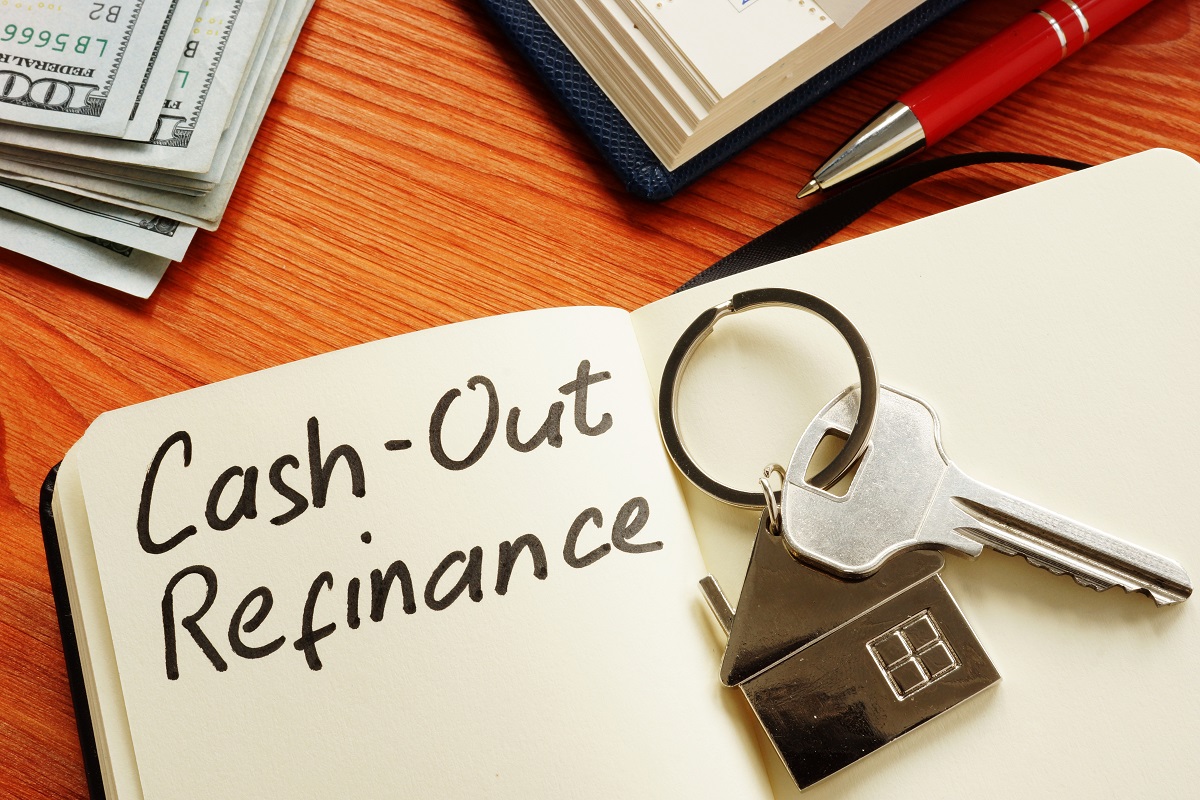


Want to turn your home's equity into cash? Learn all about cash-out refinancing and how it works. Keep reading for more information.

Paying off property takes a long time (generally, 15 or 30 years), and your home may not be your only major expense during the term of your mortgage.1 Other investments and issues—such as automobiles, education, and medical costs—may cause homeowners to seek out larger loans.
If you’ve been diligent about paying your mortgage and have accrued decent equity in your home, you may be eligible to apply for a type of loan called cash-out refinancing.
So, what is a cash-out refinance?
It’s a loan that expands the terms of your current mortgage, and it can help homeowners access quick cash by using their property as collateral. Read on to learn more about this form of borrowing, its general guidelines, and a savvy alternative that doesn’t involve accruing more debt.
When a homeowner in the midst of paying their mortgage needs cash immediately for emergencies or other expenses, they have other options besides taking out a personal loan or racking up their credit cards. If they’ve already paid off a decent chunk off their total mortgage balance, they may qualify for cash-out refinancing.
Homeowners can seek this kind of loan from the financial institution providing their mortgage, or a second lender interested in working with them. Generally, the cash-out refinancing process follows a few basic steps:2
While this process may seem simple on the surface, it comes with a few important caveats. For starters, lenders generally don’t approve loans for the entirety of a home’s value. So, to find out how much you could potentially be approved for, you’ll need to do a little bit of math.
Homeowners seeking cash-out refinancing usually have a decent amount of money still due on their mortgages. Thus, cash-out refinancing loans are issued based on the equity you have in your home, rather than its full value.
To calculate the equity you currently own in your property:3
Generally, lenders will issue cash-out refinancing loans for up to 80% of your equity.2 For a house worth hundreds of thousands or millions of dollars, that can be a rather sizeable loan. As such, lenders want to ensure they’ll see that money again. Thus, cash-out refinances can have some tough prerequisites for approval.
When applying for cash-out refinancing, lenders will look over your financial status to determine if getting involved in your debt is a risk they’re willing to take. Each homeowner’s situation is different, however. Lenders rely on underwriting—the process of assessing risk for each separate loan—to determine whether or not to offer cash-out refinancing.4
Regardless, there are some basic benchmarks that most lenders look for when sorting through loan candidates, including:5
Despite these relatively stringent qualifications, cash-out refinances aren’t the friendliest loans for borrowers. There are several disadvantages of refinancing a home loan. While all types of loans carry with them inherent risks, cash-out refinancing is particularly perilous because it may:
Homeowners should tread extremely lightly when considering a cash-out refinance for their property. If possible, they should pursue an agreement with an interest rate lower than their current mortgage.
It’s imperative that borrowers make every payment after receiving a cash-out refinance. Thus, it’s best to use the funds from such loans to bankroll businesses or other investments that pay high enough dividends to cover the monthly installments.
If you’re trying to tap into your home’s equity to secure financial assistance, there’s an alternative to cash-out refinancing (and other forms of loans). Enter Truehold's sell and stay transaction.
The process is simple:
There’s not much more to the sell and stay transaction. It allows homeowners to access quick cash when they need it, much like cash-out refinancing. It presents some unique benefits versus these and other property-secured loans, however.
For homeowners needing a lump sum to pay bills, invest, or for whatever reason they see fit, sell and stay transactions can be a flexible financial tool to help you live life more comfortably. Compared to cash-out refinancing, they present some distinct advantages, including:
If you’re looking for a way to tap into your home equity, getting wrapped up in more debt through a cash-out refinancing doesn’t need to be your only option. A sell and stay transaction can be another great solution.
While a cash-out refinance loan can net homeowners significant sums when they need them the most, they can also be riskier in nature. Like other property-secured loans, they can result in homeowners losing their houses without fair compensation from lenders.
Truehold's sell and stay transaction can let homeowners pocket similar amounts of money without the need for repayment, meaning that you can unlock your equity quicly and debt-free.
Learn more about tapping into your equity by speaking with a Truehold representative today.
Sources:
1. Investopedia. What Is a Mortgage? Types, How They Work, and Examples. https://www.investopedia.com/
2. Investopedia. Cash-Out Refinancing Explained: How It Works and When to Do It. https://www.investopedia.com/
3. Investopedia. Home Equity: What It Is, How It Works, and How You Can Use It. https://www.investopedia.com/
4. Investopedia. Real Estate Underwriting: Definition, How It Works, and History. https://www.investopedia.com/
5. Fortune. What is cash-out refinance? The ins and outs of how it works. https://fortune.com/
6. Investopedia. Reloading Definition. https://www.investopedia.com/
7. Investopedia. Does Mortgage Refinancing Affect Your FICO Score?. https://www.investopedia.com/
Chat with a real person & get an offer for your home within 48 hours.
Call (314) 353-9757